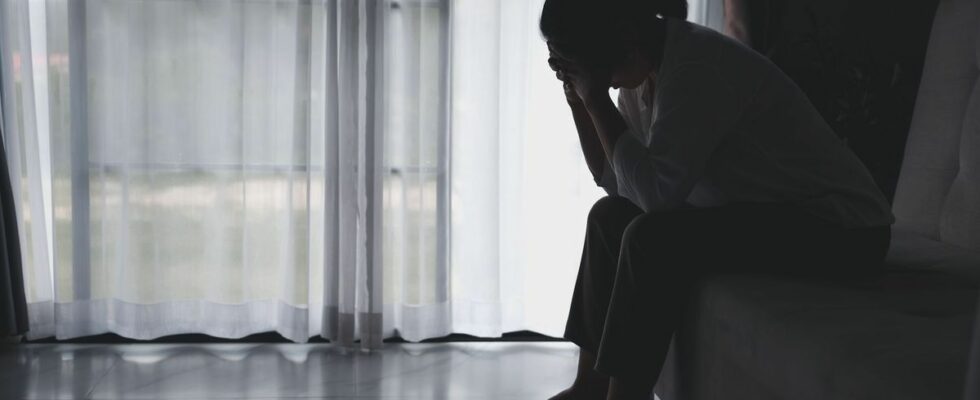Published on
Updated
Reading 3 min.
in collaboration with
Dr Joachim Müllner (Psychiatrist)
In the Netherlands, a young 29-year-old Dutch woman with several psychiatric disorders received authorization for euthanasia. In France, the inclusion of psychological suffering in the end-of-life law is also supported by several people, including MP Sandrine Rousseau. But can we treat this subject like that of physical suffering? Joachim Müllner, psychiatrist, answers us.
Should mental suffering, however unbearable it may be for the patient, be included in the criteria that provide access to assisted dying? Yes, for the Netherlands, which has just granted the request of Zoraya ter Beek, a young 29-year-old Dutch woman. If she is in perfect physical health, the young woman would suffer from chronic depression, severe anxiety and borderline personality disorder. Three disorders that she considers unbearable and that no treatment has been able to soothe over the years, leading her to make this request.
Ending psychological suffering through euthanasia, a growing subject
Zoraya ter Beek has therefore just obtained the precious authorization after a process of three and a half years under a law adopted in the Netherlands in 2002. According to this law, euthanasia is legal in the country for people living “unbearable suffering with no prospect of improvement” and this includes mental suffering.
In France too, the subject is currently being raised. While deputies are currently debating the implementation of a law on assisted dying, Sandrine Rousseau presented yesterday in the Chamber a proposed law to reduce physical and mental suffering.exactly on the same plane.
“There is no need to establish a hierarchy between physical and psychological suffering because the two are linked” she argued with emotion.
But what really happens in terms of health and the possible and proposed support? Does mental pain have no “prospect of improvement” and should they be included in the criteria for assisted dying?
The notion of incurable is different in psychiatry
For psychiatrist Joachim Müllner, member of the Doctissimo expert committee, the question is complex in the psychiatric field, and it is difficult to answer it in the same way as we answer physical suffering:
“In psychiatry, most disorders and illnesses are in fact “incurable” in the sense that we cannot “cure” that is, make the causes of the symptoms and the suffering caused disappear. The aim of the treatment is to soothe the symptoms sufficiently so that the suffering caused by the disorders is as low as possible. Depression is one of the rare illnesses treated in psychiatry which is completely curable and from which one can be cured. , thanks to both medicinal (antidepressants, anxiolytics, hypnotics) and psychotherapeutic treatment.
In the case of the Dutch patient for example, the expert does not understand the authorization: “Beyond depression, we are talking here of a personality disorder of the “borderline” type which, if it is not “curable”, can however be calmed sufficiently for the patient to be able to live without disability and, above all, without there being any need to ask the question of assisted suicide.”
Enlightened reflection impossible to carry out due to unrest
Furthermore, and this is the main point, in this type of disorder, suicidal ideas are not the fruit of free and enlightened reflection which could give legitimacy to this type of reflection on suicide, but they are themselves a symptom of the disorder.
“There is therefore, for the moment in psychiatry, no question of hearing these suicidal thoughts as an adapted request to which it would be necessary to respond positively but to understand them as a sign of suffering which is not yet sufficiently taken care of and which requires adaptation or intensification of care (hospitalization, increase in anxiolytics, sedatives, etc.)” worries the expert.
On the contrary, for Dr. Mullner, psychiatrists encounter patients who have absolutely terrible paths and who will never have suicidal ideas, and conversely, patients who have rather protected life paths and who nevertheless will have ideas suicidal.
“These suicidal ideas are therefore never to be understood as a free and informed choice of a person who has freely decided that they have addressed the issue.”
A very different criterion from physical suffering for our expert
For the psychiatrist, we are therefore in a totally different situation from physical suffering impossible to calm in connection with an incurable illness and for which, yes, “the possibility of being accompanied towards a end of life experienced as “worthy” has all its relevance.”
“Finally, it seems totally absurd to me to be debating today on the theoretical and, if they existed, extremely rare situations which would have exhausted all the therapeutic solutions on Earth at a moment in the history of medicine, where psychiatry already completely lacks the basic means to even be able to provide basic therapeutic solutions (hospitalization places, number of doctors, adapted psychotherapies, etc.)” concludes our expert.
